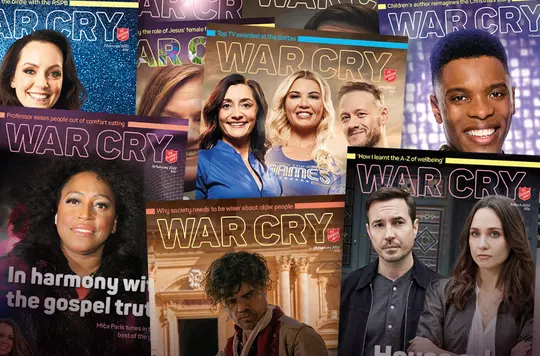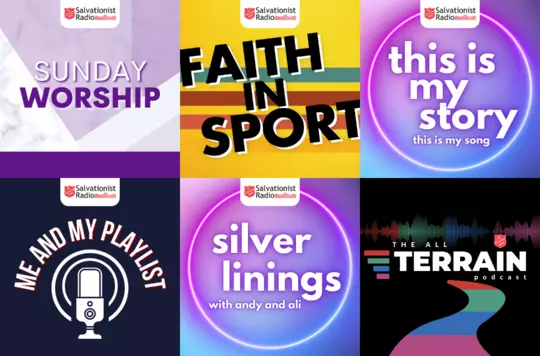10 January 2024
The Traitors: One of the faithfuls
Interview by Emily Bright
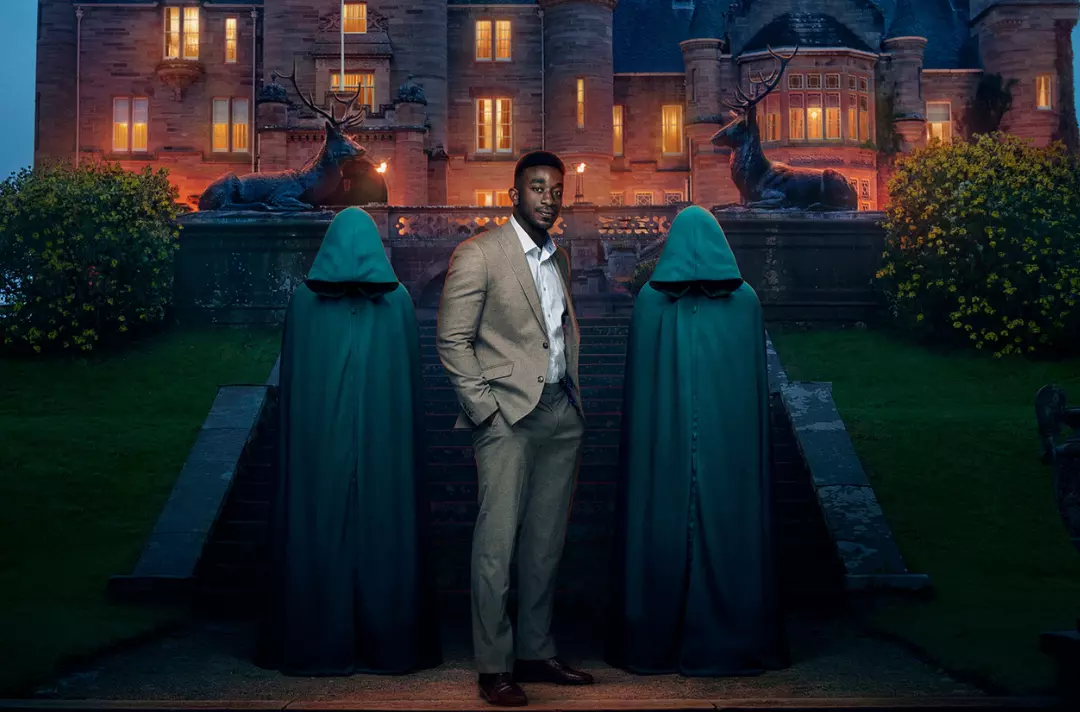
As the new series of BBC1’s The Traitors continues, Amos Ogunkoya, one of last year’s contestants, speaks to War Cry's Emily Bright about what it was like to appear on the show, what it taught him about human nature and how his faith kept him grounded.
Faithful viewers of BBC1’s The Traitors will be delighted that the second series of the psychological reality competition started last week. Claudia Winkleman has returned to Ardross Castle in the Scottish Highlands to host the ultimate game of detection, back-stabbing and trust.
Contestants work together in missions – which last year included bellringing, barrel-rolling, finding their way out of an escape room and dodging laser beams – to raise a potential £120,000 prize fund. They must then survive elimination from the game to take any money home. Most of the group are innocent ‘faithfuls’, but there are also ‘traitors’ among them, who band together and conspire to ‘murder’ contestants one by one and send them packing.
The contestants banish – or vote off – someone they suspect to be a traitor each night at the round table. But if any traitors go undetected until the end of the series, they will split the entire jackpot between themselves, leaving the faithfuls with nothing. If all the traitors are caught, the remaining faithfuls split the prize money equally between themselves.
Last year, the first series drew in more than 34 million viewers to BBC iPlayer and won a Bafta, among many other awards. One of last year’s contestants, Amos Ogunkoya, believes that the show’s popularity lies in its exploration of what people are really like under pressure.
‘People like antiheroes or those that break the rules, and watching contestants manipulate each other is quite interesting,’ he says. ‘The show has got the pageantry, it has got the human side, it has got the back-stabbing. But it also has the friendships, there are some nice characters. It is a real presentation of life but heightened, so you get to have your villains or people you root for.’
The first challenge the contestants faced last year was to rank themselves from most likely to least likely to win. Amos, who along with fellow contestant Kieran, humbly put himself at the end of the line, was taken at his word. He and Kieran were immediately told by Claudia Winkleman to leave.
'It was a massive shock,' he says. 'I was really shaken. It felt like an anticlimax, because you gear up to take part in the show, and it doesn’t end up in the way you think it’s going to go.’
So he was delighted when he and Kieran made a surprise reappearance a few episodes later. ‘Coming back was amazing,’ he recalls. ‘I look back on that with quite a lot of fondness. Me and Kieran are quite close because of it.’
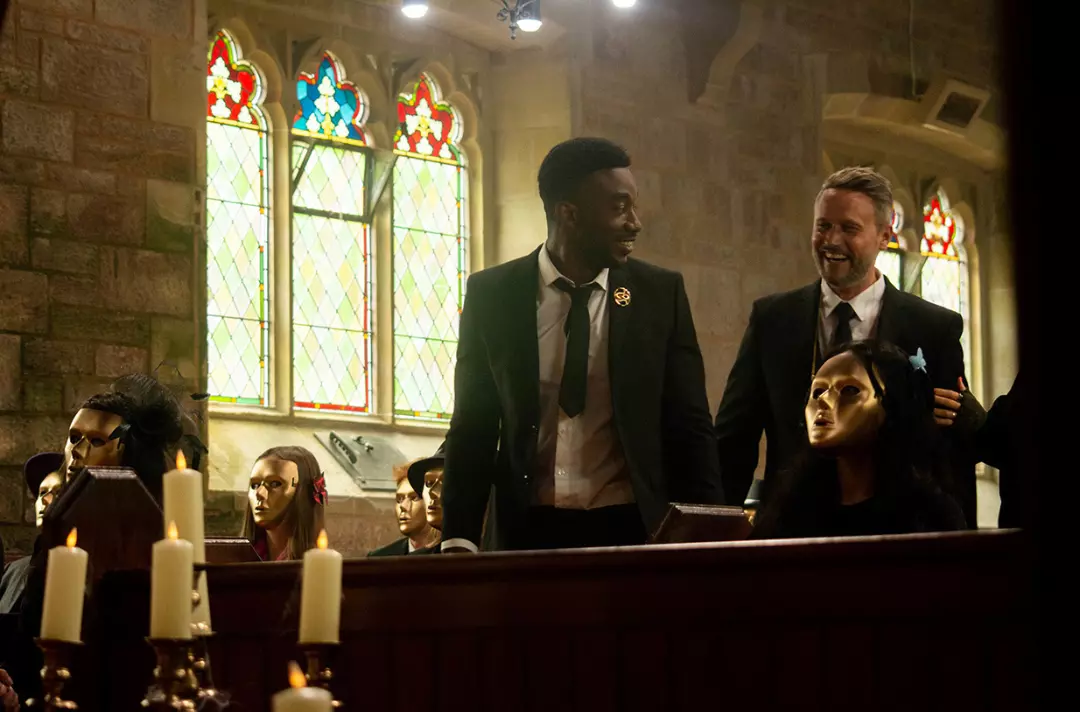
Amos experienced the brutality of the game once again when he was later ‘killed off’ by traitor Amanda with a ‘kiss of death’: an innocent-looking peck on the cheek that turned out to be a signal that he was out of the game.
‘I didn’t realise what had happened until afterwards,’ he says. ‘I was murdered in plain sight, and it was difficult to get my head around. Me and Amanda are quite friendly about it now, and it is something that we laugh about. But at the time, it was a shock.’
In the wake of Amos’s fictional death, there was an outpouring of grief from the contestants. Best pal Andrea clutched his portrait and Kieran wept. While it seems rather over the top in hindsight, Amos explains that the show’s full-on format took its toll.
‘We all got emotional. The game was very real. Everyone got upset, and people did miss their friends. There was a hyper intensity, because in that moment it felt like all that mattered was the game, like it was the most important thing in the world.
‘Obviously there are more important things than playing the game, but it became our lives. We were cut off from our families and friends. You make new families and friends in that short period of time.’
Amos acknowledges that, because of the show’s intensity, the round table – where contestants discussed who should be voted off the show – became regrettably heated at times as the group sought to weed out the traitors.
‘There was something innately difficult about watching someone who was innocent be harangued, and obviously in retrospect, we did that,’ he says. ‘But at the time, we didn’t have that knowledge.
‘Being a traitor in the game doesn’t make someone a bad person, but sometimes it feels like they are. People got attacked for their character rather than the fact that people thought they were traitors or not. That was quite difficult to watch back.’
Amos learnt a fair bit about human nature by taking part in the show. ‘In terms of trust, it made me realise that under stress, human beings revert to type. Sometimes circumstances make people lie, but you have to trust people’s nature.
‘I think you can assume kindness in people, and I don’t think you’ll ever regret acting out of kindness. Friendship is also important. All of us on the show, faithfuls or traitors, are still quite close because we have a sense of community over a shared experience.’ Amos’s attitude towards appearing on the show was also shaped by his Christian faith.
He says: ‘I prayed quite extensively before The Traitors. As I prayed, I realised I should put other people before myself. Through my faith, I can learn to see people who might not be treating me well in terms of compassion and forgiveness, understanding that you can be kind to someone who has wronged you.
‘It also provides an understanding that things might happen for a reason, that bad things happen, and that sometimes people are unaware of why they do things. But if you look at situations through a compassionate lens, it makes them easier to navigate.’
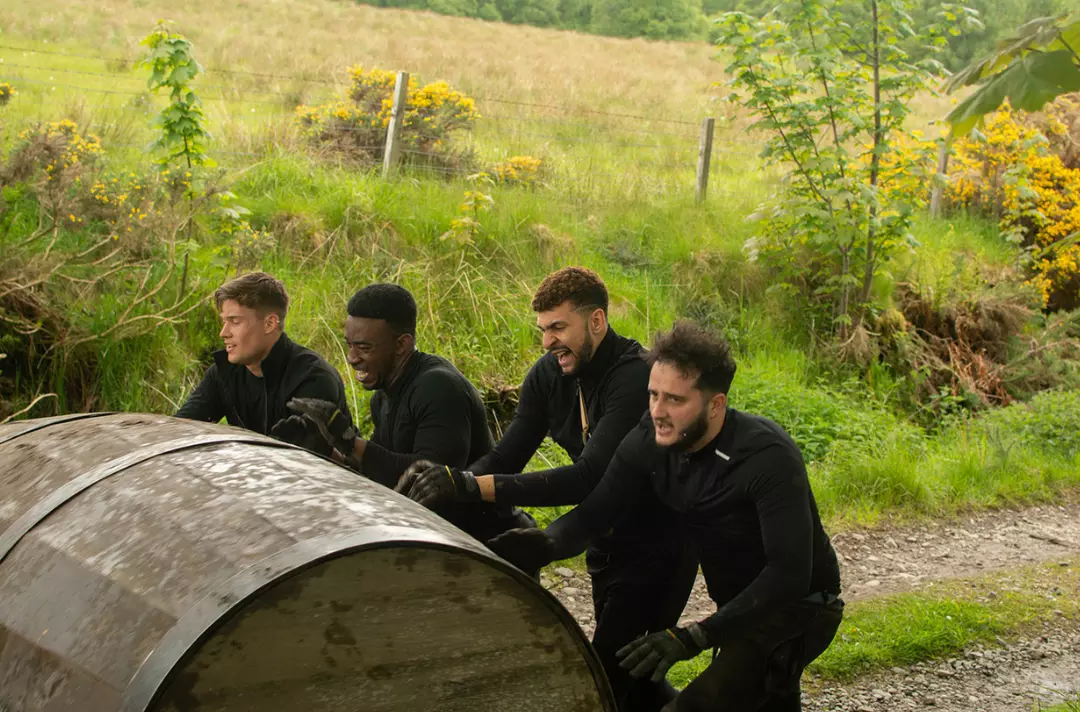
Amos says that his faith was reawakened at a time when he most needed help several years ago. ‘I grew up Christian, but I fell out of love with it. Then I found it through the pandemic, because I was working as a doctor on the front line of the NHS and realised things are bigger than me.’ He adds that faith has been a force for good in his life.
‘I think God, Jesus, Christianity itself represents hope and understanding. My faith helps me navigate important decisions based on core principles and ideas about how a good life is led.
‘It doesn’t mean a life free of challenges and difficulties, but it has helped me see that there is a plan, a higher power and a path that I’m supposed to walk. My faith is one of the reasons why I became a doctor. I think my purpose is to be an advocate for people’s health and help them. Helping other people makes me happy.’
Amos explains what his faith looks like in practice. ‘I connect with God through prayer and acts of service,’ he says, ‘doing things and focusing on living out what I’ve read and learnt through my walk with Christ. For instance, the Bible says: “My shield is the God Most High, who saves the upright in heart.” (Psalm 7:10). That verse helps me navigate through life, prepare for difficulties and be emboldened by the fact that God is on my side.’
Written by
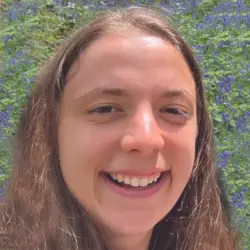
Emily Bright
Staff Writer, War Cry
Discover more
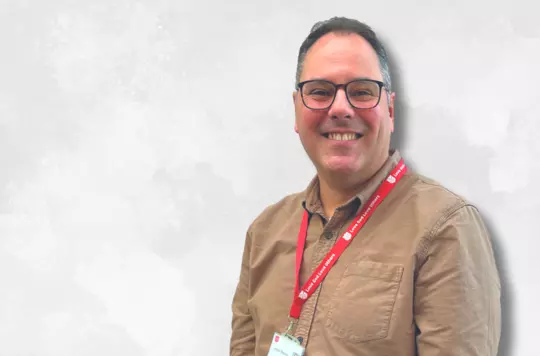
Outgoing Kids Alive! Editor Justin Reeves is grateful that he’s always had Jesus in his life.
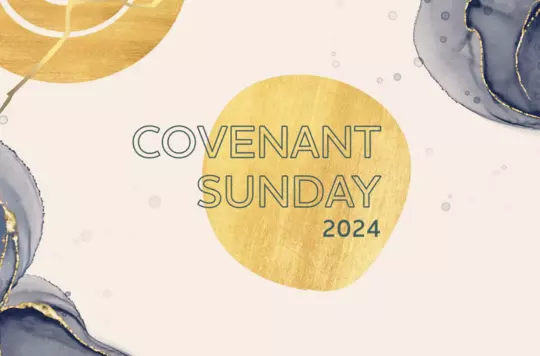
Lieut-Colonel Jayne Roberts introduces Covenant Sunday.
